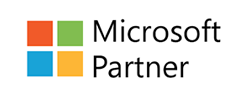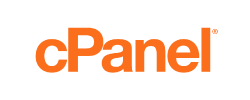As domain names continue to surface, the numbers of people who engaged into getting, purchasing, and owning a domain names rises. This event therefore leads to an increase in number of the domain name owners. Given such fact, the International Corporation of Assigned Names and Numbers or the ICANN with its Uniform Dispute Resolution Policy (UDRP) and the Anti-cybersquatting Consumer Protection Act (ACPA) recently presents serious dangers to the innocent domain name owners.
So, there surfaced a number of considerations for the domain name owners to avoid loss of their domain names. One of the considerations that the domain name owners should give attention to lessen the danger of losing their domain names is to get a trademark registration that match their respective domain name. This process is not too difficult for the fact that some of the countries today cater to this service and this is not really required by the law to employ a trademark company.
Following such consideration for the innocent domain names owners’ sake is the act of keeping the Whois information up to date. This is considered to be very important since there are some cases where a court or the UDRP tribunal ruling against particular domain name owners based its judgment in line on incomplete or out of date Whois information. And after doing such move, the domain name owners should also check their Whois and Domain Name System information not just once but always.
Since it is a common case where most of the domain name owners fail to pay their registration fees and therefore lose their domain names, it is therefore necessary for the domain names owners to pay for such registration fees to keep their domain names in function and up to date. One major support for this fact is that Whois information of certain domain name owners that is out of date will only lead to the situation where their domain name registration fee never reached them.
And finally, in cases where someone contacts the domain name owners regarding their domain names, it is important that they are aware that regardless of how folksy or friendly a letter could be from someone asking their domain names, any answers by the domain name owners that makes of the possible blunders may probably cause a lawsuit or UDRP complaint taking advantage of the domain name owners’ blunder. But, if the domain name owners really receive a UDRP complaint, then it is a right time to respond the complaint, since the majority of UDRP decisions against the domain name owners are default decisions that is where the domain name owner failed to respond to the complaint.
So, there surfaced a number of considerations for the domain name owners to avoid loss of their domain names. One of the considerations that the domain name owners should give attention to lessen the danger of losing their domain names is to get a trademark registration that match their respective domain name. This process is not too difficult for the fact that some of the countries today cater to this service and this is not really required by the law to employ a trademark company.
Following such consideration for the innocent domain names owners’ sake is the act of keeping the Whois information up to date. This is considered to be very important since there are some cases where a court or the UDRP tribunal ruling against particular domain name owners based its judgment in line on incomplete or out of date Whois information. And after doing such move, the domain name owners should also check their Whois and Domain Name System information not just once but always.
Since it is a common case where most of the domain name owners fail to pay their registration fees and therefore lose their domain names, it is therefore necessary for the domain names owners to pay for such registration fees to keep their domain names in function and up to date. One major support for this fact is that Whois information of certain domain name owners that is out of date will only lead to the situation where their domain name registration fee never reached them.
And finally, in cases where someone contacts the domain name owners regarding their domain names, it is important that they are aware that regardless of how folksy or friendly a letter could be from someone asking their domain names, any answers by the domain name owners that makes of the possible blunders may probably cause a lawsuit or UDRP complaint taking advantage of the domain name owners’ blunder. But, if the domain name owners really receive a UDRP complaint, then it is a right time to respond the complaint, since the majority of UDRP decisions against the domain name owners are default decisions that is where the domain name owner failed to respond to the complaint.








